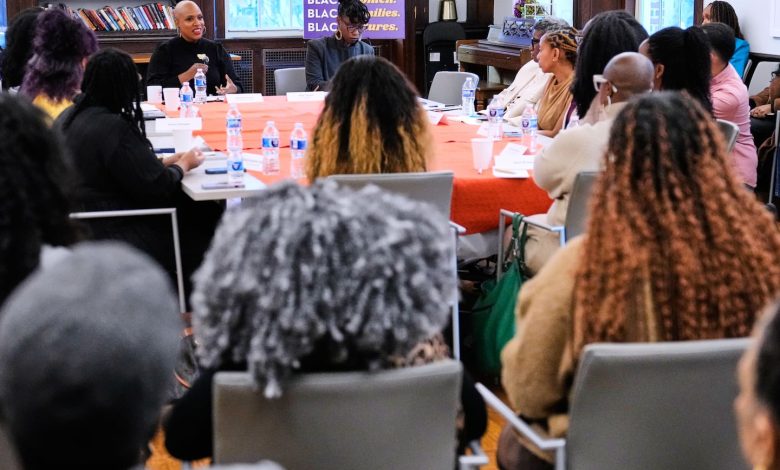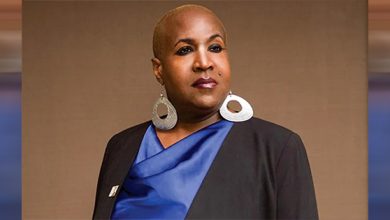Act to end high jobless rate among Black women

Her struggle mirrors a trend documented in recent federal employment data, which show the unemployment rate for Black women rising for three consecutive months.
On Monday, Inniss joined a roundtable and press conference hosted by congresswoman Ayanna Pressley in partnership with YW Boston, bringing together impacted Black women, economists, civil rights leaders, mental-health providers, and community members to highlight what Pressley called a “five-alarm fire” in the labor market.
The Democratic congresswoman from Boston has raised the issue of high unemployment among Black women in recent months, writing to Federal Reserve Chair Jerome Powell, as well as questioning him during congressional hearings on the Civil Rights history of the Fed policies.
Pressley Monday continued to press the central bank and federal agencies to address what she calls a “growing pushout” of Black women from the workforce.
“The feds have a statutory mandate of full employment. We need you to study the data, we need you to come up with a plan,” she said, speaking at the YW Boston Kuumba Library.
According to September’s jobs report, the unemployment rate for Black women remains almost twice the national rate of 4.4 percent.
Black women make up 12 percent of the federal workforce, nearly double their share in the overall labor force. Pressley said recent federal layoffs by the Trump administration have eliminated many jobs historically held by Black women, including roles in student aid processing, fair housing enforcement, and consumer protection.
“Nearly 70 percent of Black women are the primary breadwinners in their households,” she said. “When we lose work, it reverberates far beyond ourselves. Black women are economic ecosystems.”
Pressley also stressed how stark the crisis would appear if another demographic were affected at the same scale. “If white women were being pushed out of the labor force at the rate that Black women are, we’d be looking at the equivalent of three million white women unemployed — the entire female workforce of Pennsylvania,” she said. “If that were happening, the country would be paying attention. That’s exactly why we are calling on the fed to do their job.”
Other speakers detailed the barriers Black women face in the current job market — delayed unemployment benefits, shrinking grant and contract opportunities, and hiring processes they fear may rely on algorithms that replicate bias. Inniss said the speed of her rejection emails made her question whether automated systems were screening her out before a human ever saw her résumé.
“We all know that it’s not legal for companies to engage in racist hiring practices when the decision is happening on a human level, but my sense is that AI is playing a role in discrimination with the algorithms,” she said.
Aba Taylor, president and CEO of YW Boston, said the 7.5 percent unemployment figure only scratches the surface of what many Black women are experiencing.
“We are America’s expendables,” she said. “Overlooked, pushed down, exploited — and yet we still show up, anchor our families, and hold our communities together.”
Economist Anna Gifty Opoku-Agyeman warned that the crisis does not stop with Black women. “Don’t ignore your neighbor when their house is on fire,” said Opoku-Agyeman, a doctoral candidate at Harvard. “What’s happening to Black women economically is now reaching all women. It’s only a matter of time before it reaches other groups.”
Mental-health providers said the economic instability adds to longstanding stressors. Helen Joseph, a licensed mental-health counselor, urged employers to create trauma-informed workplaces and invest in mental-health care rooted in cultural understanding. “Everything happening in this country is creating trauma,” she said. “Our communities will feel these impacts for generations.”
For Inniss, the loss is also personal. Her great-grandmother owned a laundry service in Roxbury in the 1920s and managed to buy two homes. Today, despite multiple degrees, Inniss is still struggling to find stable work. “I look at my life and think, how is it that I have less opportunity than she did in 1926?” she said.
Sadaf Tokhi can be reached at sadaf.tokhi@globe.com.




